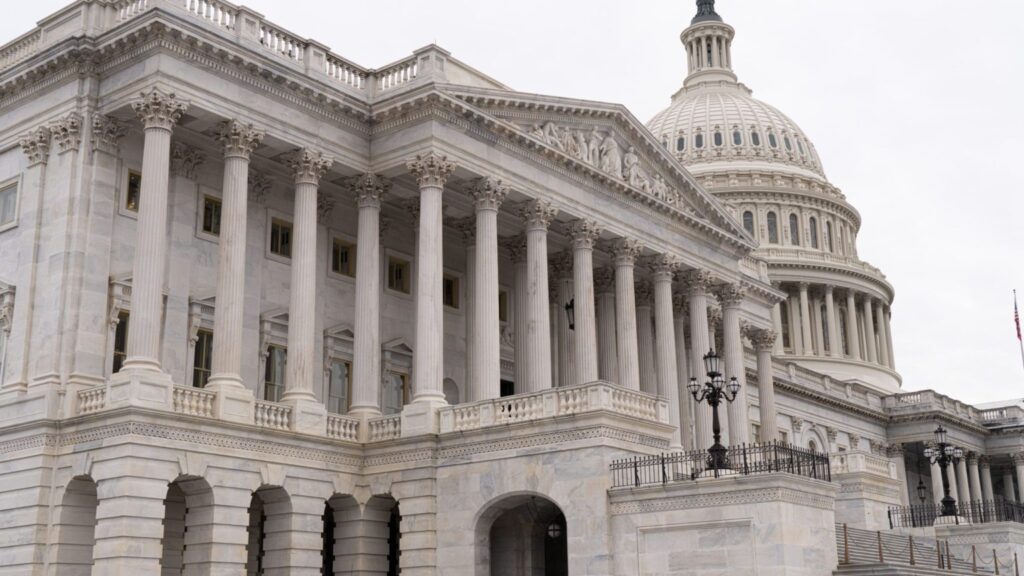News Analysis: House Budget Riders Could Impact D.C. Funding, Voting Laws
By • July 17, 2023 0 1552

For months D.C. officials have been roiled by proposals from the U.S. Congress to restrict and tighten up some of the District’s crime arrest and detention policies. President Biden actually signed into law a “resolution of disapproval” in February, while vetoing and killing further D.C. policing restrictions in another congressional resolution in April. A relatively civil hearing was held in May between the Congressional oversight committee from the District and Mayor Muriel Bowser among other officials (with both sides agreeing the Commanders should have a stadium in D.C.)
But now Congress is at it again – attempting to restrict the city from using local funding for certain approved programs such as recreational marijuana, subsidized abortions and even some traffic enforcement including automated cameras to punish traffic violations and bans on turning right-on-red at certain intersections. Congress has also introduced stand-alone legislation to rescind D.C.’s recently-passed law allowing any non-citizens to vote in non-federal elections after 30 days of residency in the city.
Other proposed Congressional funding blockades would prohibit enforcement (by withholding funding) to allow D.C. physicians to help terminally ill patients die. Another would ultimately allow people with concealed weapon-carry permits from other states to carry in D.C., even though locals are not able to get such a permit easily. National rules proposed by the House Administration Committee passed a new election ruling that included a D.C. requirement to display a photo ID in order to vote and prohibit the city from sending unsolicited live mail-in ballots to all registered voters, prohibit same day registration and restrict the use of ballot drop boxes.
The U.S. Constitution allows Congress to approve, disapprove and challenge Federal District laws and budget decisions through resolutions of disapproval, defunding mechanisms and other means since the jurisdiction is not a state and is under the authority of Congress. This even when the issue (such as the non-citizen voting clause) did not pass an earlier Congressional resolution of disapproval. Attempts last week to have the American Confidence in Elections Act (ACE Act) drop all D.C. initiatives were not successful, however.
The budget rider is a tool used by both Democrats and Republicans to stop D.C. from funding certain controversial initiatives, particularly legalizing the sale of marijuana in the city — a federal offense. The recent rider prohibits the city from spending any money to implement the new law. As for non-citizen voting, it was estimated that it would cost $1.6 million to create a new voter registry for non-citizens, who would then be allowed to cast ballots for local offices such as mayor, attorney general, council, and Advisory Neighborhood Commissioners. Any non-citizen who has lived in D.C. for 30 days would be allowed to register and vote.
This is almost wholly unique. Very few jurisdictions in the U.S. allow non-citizen voting in local elections and then it almost always includes only those with Permanent Legal Residence permits — aka: green cards — almost never for those living and working in the country illegally and without any authorization and rarely for those on temporary time-limited permits. Yet D.C.’s new law makes no distinction as to immigration status (i.e., legal or non-legal). All can simply register to vote. Even those thousands of highly esteemed non-citizens in the District who are not subject to U.S. laws because they are of diplomatic families with full diplomatic immunity. They do not even qualify for birthright citizenship under the 14th Amendment.
Many Americans believe that voting is the sole and inherent right of citizens with a lifetime of affiliation, loyalty and legal attachment to their country and community. Naturalized citizens must swear in a formal ceremony their allegiance and loyalty to the United States, “forswearing allegiance to any foreign potentate.” D.C.’s extreme non-citizen voting bill, however, “devalues citizenship,” wrote the Washington Post in an editorial.
Others have pointed out that many elections in D.C. are won or lost by less than ten votes – an easy total to amass with casual voters especially with large benefits at stake such as housing and subsidies for recent arrivals who intend to apply for asylum. In addition, most ballots and referenda in the District contain federal issues and candidates – even though we don’t have official state ones.
How do you protect a foreign national voter from committing a felony by voting on a D.C. ballot that includes federal offices? How many separate ballots must each voting option offer and how is that to be paid for and enforced?

